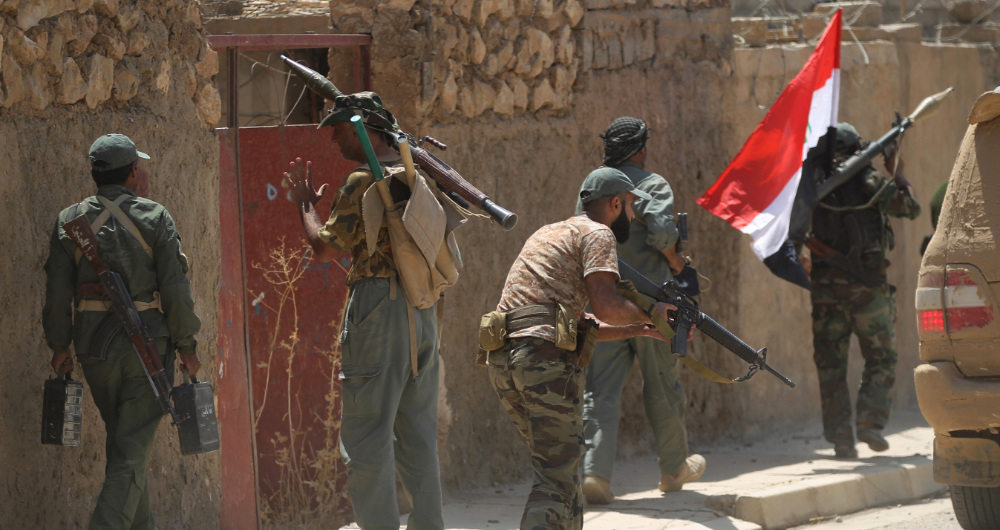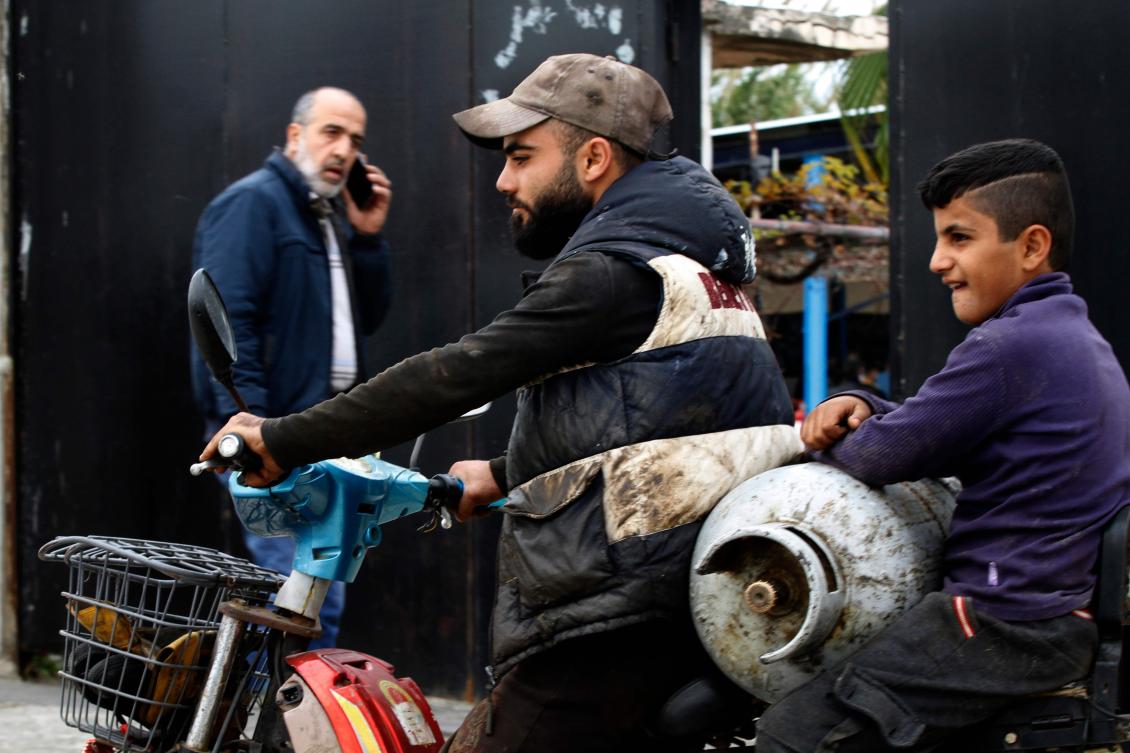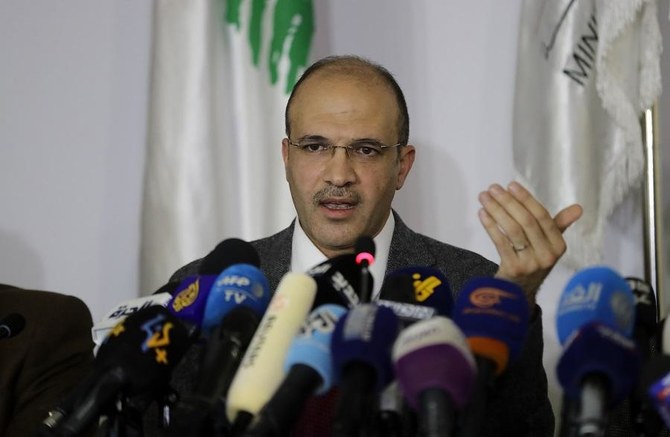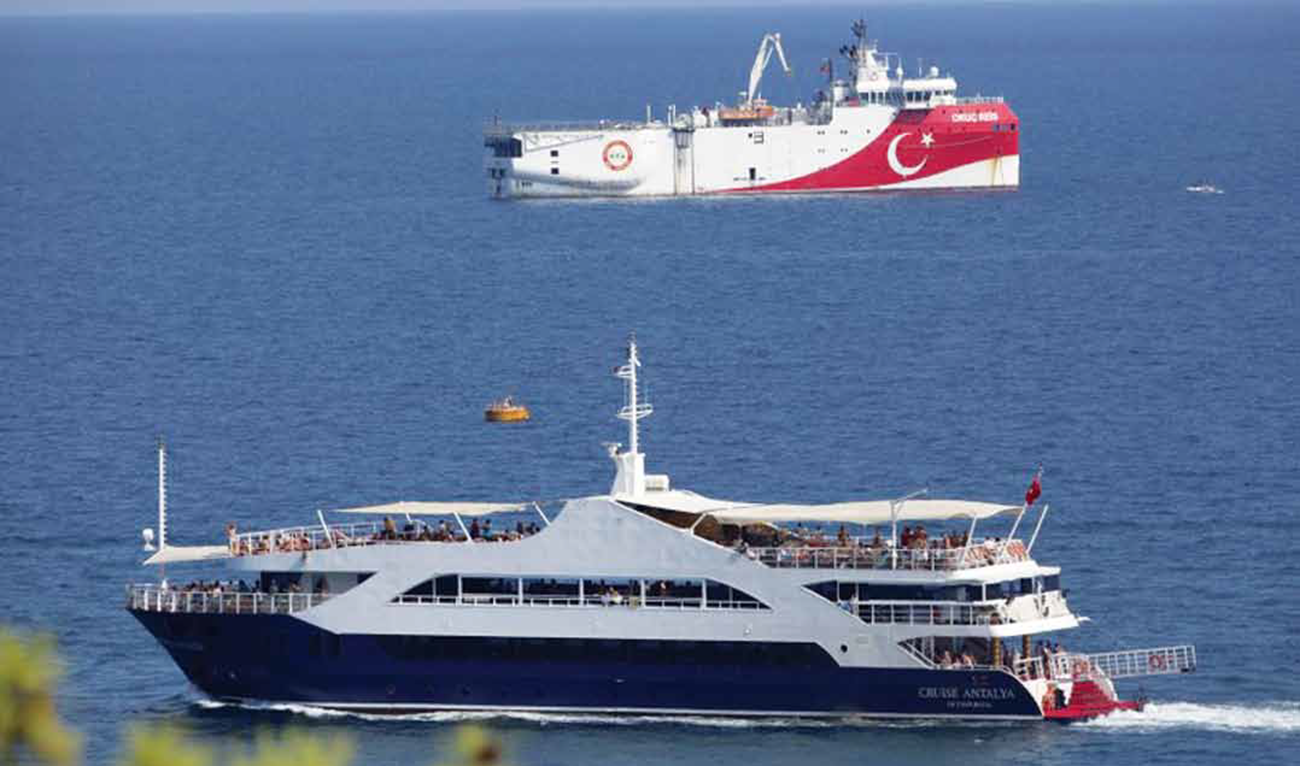ANKARA: A first round of new exploratory talks between Turkey and Greece will take place this month following Ankara’s offer to discuss conflicting territorial claims in the Eastern Mediterranean.
The talks are set to take place in Istanbul on Jan. 25.
It will be the 61st round of exploratory talks to be held in the past 14 years, but previous meetings mainly focused on issues related to the Aegean Sea.
Athens is expected to focus discussions on maritime zones in the Aegean and East Med in line with the UN Convention on the Law of the Sea (UNCLOS), while Ankara has not set any pre-conditions for the talks.
Turkey is not a signatory of UNCLOS and does not recognize the government of Cyprus, an EU member.
Rauf Mammadov, resident scholar at the Middle East Institute, told Arab News that any direct dialogue was a positive step toward reconciliation between the conflicting parties.
“The dialogue is also the sole non-conflict method toward resolving the disagreement in this particular case.
“The gist of the dispute between the two NATO members rests on a competing interpretation of international law. The alternative to talks is regular diplomatic feuds, sometimes accompanied by threats of military escalation,” he said.
However, Oxford University Middle East analyst Samuel Ramani said that a short-term diplomatic breakthrough in the Med standoff between Greece and Turkey was “unlikely” to happen.
“Levels of trust on both sides are extremely low and both sides see any diplomatic overture as an image-branding exercise to the international community, rather than a sincere attempt to de-escalate the crisis,” he added.
Ramani said it was “unsurprising” that Turkey offered to stage talks with Greece, as Ankara had hinted toward it previously.
“The only path to convergence in the Eastern Mediterranean is for some of the tensions around the Greece-Turkey dispute to ease. Turkey’s recent overtures toward France are a positive step, as are the UAE’s recent statements on de-escalating with Turkey,” he added.
Turkey rejects the maritime boundary claims of Greece and Cyprus, claiming they violate the sovereign rights of both Turkey and Northern Cyprus.
Experts have also underlined the importance of the announcement’s timing.
“Ankara and Athens are taking steps toward a potential compromise as the Southern Gas Corridor (SGC) becomes operational. The project is a rare example of continuing economic cooperation between two neighboring nations,” Mammadov said.
He added that a possible resolution to the East Med energy dispute would be successful if driven by mutually beneficial economic interests, similar to the SGC.
Charles Ellinas, a senior fellow at the Atlantic Council, told Arab News that the incoming administration of US President-elect Joe Biden must be of concern to Turkey, especially given that within a short length of time it had become the subject of sanctions both from the EU and America.
“It is very important that aggressive language and threats should be avoided. The recent warning from (Turkish President Recep Yayyip) Erdogan to the EU that in case it supports Greece, Turkey will return back to offshore surveys and further escalate the dispute, is not constructive,” he said.
Ellinas added that without a change in direction, Turkey was likely to face a difficult time with Biden, while a constructive start to discussions with Greece would be seen quite positively by the EU and the US.
On the other hand, both countries are hoping for stronger support from Washington in consolidating their regional gains and pushing for their “red lines” ahead of the upcoming inauguration of Biden on Jan. 20.
However, Ramani said that while a reduction of the aggression on both sides was possible, the core issues would be harder to resolve.
“Turkey will keep its gas extraction agreement with Libya, which is unacceptable to Greece. The Cyprus dispute is still a point of friction,” he added.
Decades-long efforts to establish peace in the divided island are on the verge of collapsing, especially after Ankara began advocating the division of Cyprus into two states in October last year.
The controversies unfolding around maritime rights and hydrocarbon explorations off the island are also adding fuel to the growing tensions in Eastern Mediterranean waters.
Ramani said that the key issue that Turkey-Greece dialogue would resolve, in theory, was the end of Turkish brinkmanship, such as harassment of fishing boats and provocative military drills. “It likely won’t solve the core problems,” he added.
In December, Turkey withdrew its Oruc Reis seismic research vessel that was operating in disputed waters of the Eastern Mediterranean, triggering a row with Athens over energy drilling prospects.
The ship will remain within the Turkish continental shelf until June 15 — a move that was seen by some as a goodwill gesture.
The 60th round of talks, the most recent between the two countries, began in Athens in March 2016. The talks continued for years through political consultations, despite having no formal framework.
“Athens’ only pre-condition is that the exploratory discussions should address only the delimitation of maritime zones, based on international law, starting from where they stopped in March 2016. Turkey appears to prefer open-ended discussions. Hopefully, they will converge to an agreed agenda,” Ellinas said.
Turkish Foreign Minister Mevlut Cavusoglu and Erdogan met EU member-state ambassadors in Ankara on Tuesday, in a move seen by many experts as another attempt to reconcile with the EU and mend ties with Greece. Cavusoglu is also set to travel to Brussels on Jan. 21.






